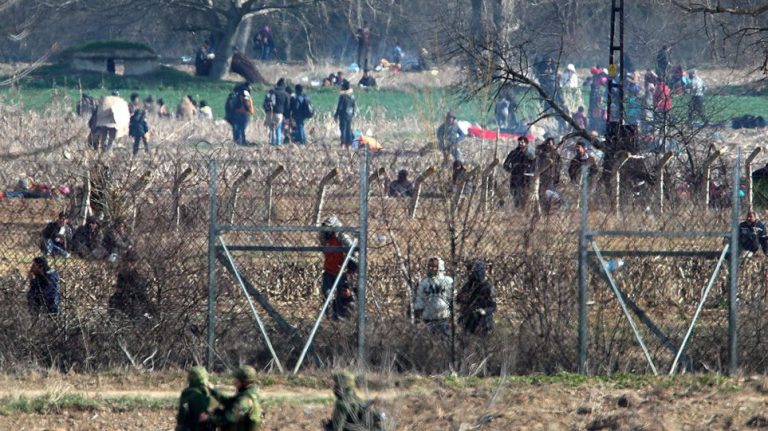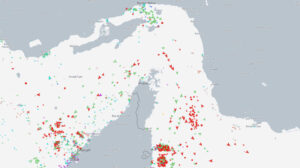At the beginning of March, thousands of refugees gathered in the shadow of the Pazarkule border gate in Turkey after President Recep Tayyip Erdoğan said he would “open the gate” to Europe.
The move was a reaction to the killing of 33 Turkish soldiers in Idlib province on 28 February and designed to exert pressure on the EU and Nato to support its military operation in northern Syria.
Many boarded buses to Pazarkule – some organised by Turkish authorities from Istanbul – others walked. People gave up homes they’d been renting and sold whatever belongings they had left.
Rima, a 45-year-old Syrian former nurse who documented the atrocities of the regime in a field hospital in Daraa, packed up what she owned, left her rented accommodation and paid 500 Turkish lira (£56) to get to Pazarkule. She hoped to find a way into Europe and on to Switzerland where her sister is a political refugee.
When she arrived, however, she quickly realised the closed borders meant she was simply part of a bigger game by the Turkish government. “I understood we were being used,” she says.
Greek forces used tear gas and stun grenades to repel people trying to cross. Turkey claims 150,000 people crossed the land and sea borders during this period while Greece puts the official numbers at fewer than 3,500.
Heatwave expected to hit Greece next week
In the following weeks, Rima and the thousands who remained in Pazarkule went from one nightmare to another as the coronavirus outbreak gripped Europe. On the night of 26 March, Turkish forces burned the tents of those living in the makeshift migrant camp and forced them on to buses, driving them thousands of miles across the country to quarantine camps.
Lighthouse Reports followed Rima and 29 others on their journeys from Pazarkule: tracking and verifying testimonies through apps, live streams and social media updates.
The investigation has shown how, after leaving the quarantine camps, some people ended up on the streets of Izmir. Others, including children, were put into a detention facility in Ankara. Some of the Syrians have been threatened with deportation to “safe zones” in northern Syria. These people are what remains of Turkey’s “leverage” over the EU. Their stories are just a handful of those who risked and lost much at the European border in March.
Read more: The Guardian
Ask me anything
Explore related questions





